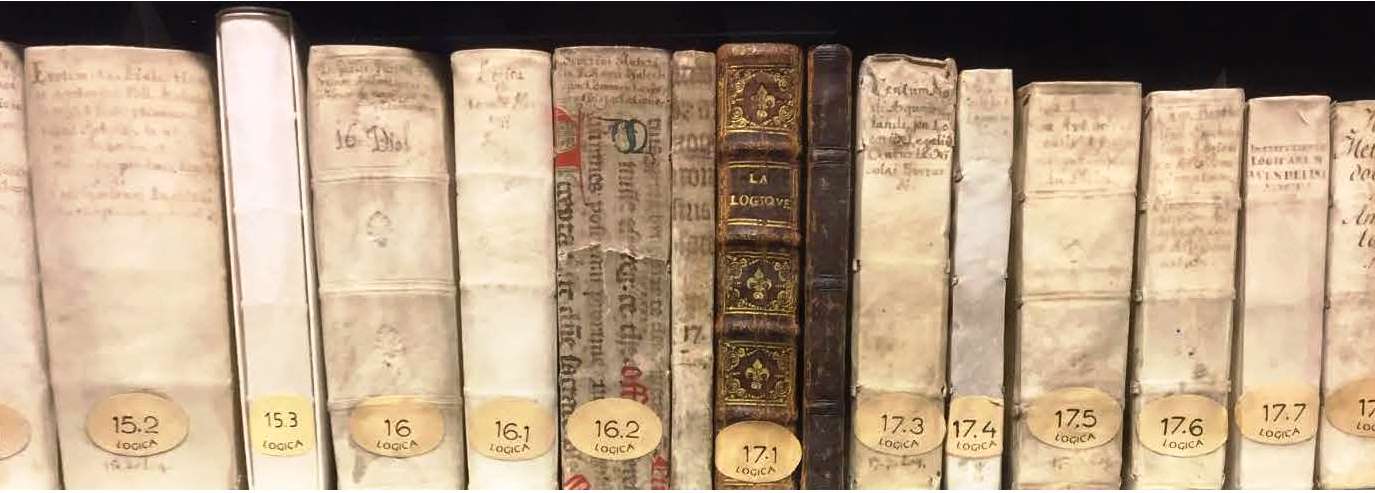|
Practices of Writing and Reading in Logic
June 23, Morning & June 24, Morning

Workshop at
UNILOG'2018 organized
by
Anna-Sophie Heinemann
University of Paderbron, Germany
Amirouche Moktefi
Tallinn University of Technology, Estonia
A great deal of the working logician’s job is: to write – and read. This holds in at least two senses:
First, in order to tackle a task in logic, it is necessary to apply the rules for transformation or deduction as stated relative to a given logical system. In order to apply these rules correctly, you may produce certain inscriptions and watch a sequence of transformations of an initially given formula, i.e., you may write down the consecutive steps and eventually read off the result.
But secondly, there is a broader sense in which writing and reading are relevant to logic. Communicating logical problems (and solutions) inevitably requires activities of writing for an audience, and most commonly at least some bits of prose. Then, participating in the ‘logical community’ will typically require to disseminate your outcomes. But participating in the ‘logical community’ also requires to work through others’ contributions. Hence activities of reading are necessary to assess received input – which may then again be commented on, corrected or disproved. Moreover, the range of available input may depend on individual or collective activities of selecting and systematizing items of logical work which is deemed as relevant. Hence what there is for you to read may to great extent depend not only on what has been written, but also on what has been read by others.
The presently announced workshop aims at an account of logic as construed from logicians’ practices of writing and reading in both respects. Further interests are activities of commenting or reviewing, and of publishing and collecting. In order to take an interdisciplinary stance, the workshop will allow for a variety of approaches.
Call for papers
Topics for contributions may include, but are not restricted to:
- Questions of notation in logicians’ formalizations
- Questions of literary style in logicians’ prose
- Tools for collaborative research in logic
- Bibliometrical research on logic publications
- The role(s) of logic journals
- The role(s) of reviewing sections in logic journals
- Translations of logical literature
- Logicians’ publishing activities
- Logicians’ reviewing activities
- Logicians’ perusal of public or research libraries
- Logicians’ private libraries and collections
- Correspondence among logicians
- Correspondence among logicians and publishers
Contributed talks should not exceed a duration of 30 minutes including discussion. To submit a contribution, please send a one-page abstract by November 15, 2017:
annasoph@mail.uni-paderborn.de
| |
 SCHEDULE
SCHEDULE

!!! This schedule is subject to change until the last minute !!!
Keynote Speakers

Dirk Schlimm
McGill University, Canada
“General principles for the design of logical notations”
Volker Peckhaus
University of Paderborn, Germany
“David Hilbert’s Early Logical Notation”
Contributing Speakers
Moritz Cordes,
Department of Philosophy, Greifswald University, Germany,
“Logic as Subject and Method of a Logician’s Work”
Lorenz Demey,
Center for Logic and Analytic Philosophy, KU Leuven, Belgium,
“Center for Logic and Analytic Philosophy, KU Leuven, Belgium”
David Dunning,
Ph.D. Program in the History of Science, Princeton University, USA,
“Teaching Begriffsschrift: Frege’s Notation and the Problems of Pedagogy”
Alfred van der Helm,
“Practices of Writing and Reading in Logic: the 14th Century case of Thomas Manlevelt”
Javier Legris,
CONICET, University of Buenos Aires, Argentina,
“Note on Paul Hertz and the Orgins of the Sequent-Notation”
Alexander Linsbichler,
University of Vienna, Austria,
“Truth-tables and Tautologies in Early Logical Empiricism: Hans Hahn as a Pioneer of Logical Pluralism”
Daniel Lovsted ,
Departments of Philosophy and Computer Science, McGill University, Canada ,
“On the Notation of Fred Sommers’ Traditional Formal Logic”
Tabea Rohr ,
Institute of Philosophy, Friedrich-Schiller-Universitat Jena, Jena,Germany,
“Truth Tables without Truth Values. On 4.27 and 4.42 of Wittgenstein’s Tractatus”
Back to the 6th Universal Logic Congress
|

 SCHEDULE
SCHEDULE 